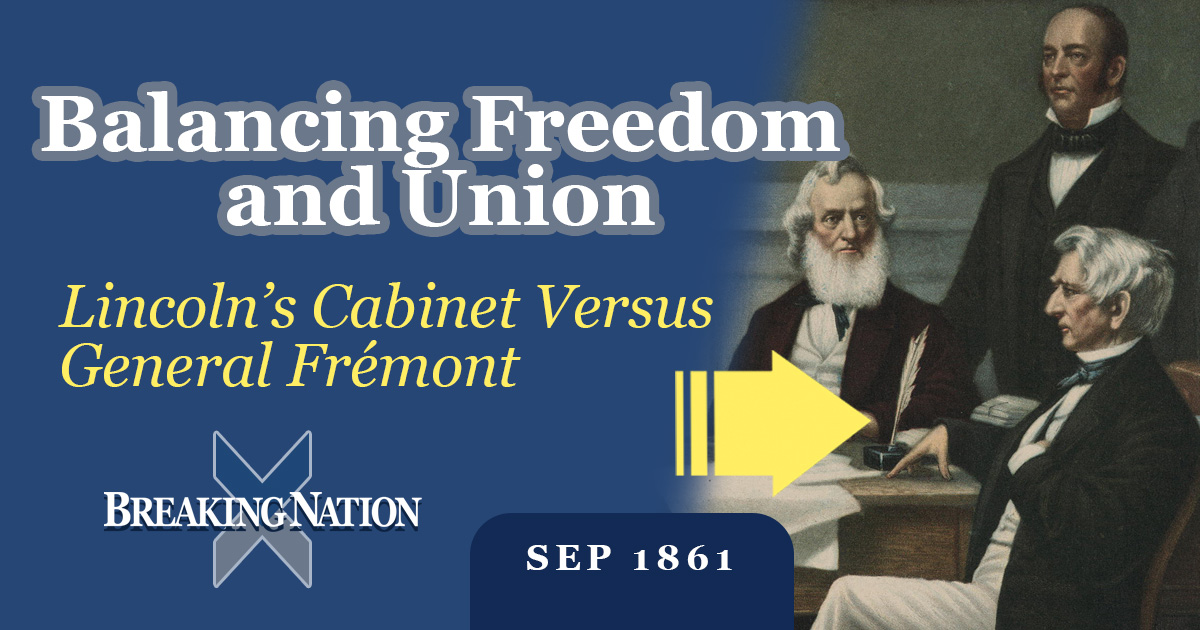A General, a Proclamation, and a Cabinet in Crisis

In September 1861, the question of whether to remove General John C. Frémont from command of the Union’s Western Department revealed not just concerns about military strategy, but also deep tensions within President Lincoln’s Cabinet. Frémont, a former Republican presidential contender and a fervent abolitionist, had quickly become a polarizing figure. While his bold stance against slavery earned him admiration among radicals, it also sparked alarm in Washington, where Cabinet members were increasingly wary of his independent streak and public prominence.
The immediate flashpoint was Frémont’s unilateral emancipation proclamation in Missouri, freeing the enslaved of Confederate sympathizers. Radical as it was, the move unsettled moderates in Lincoln’s Cabinet, including Secretary of State William Seward and Secretary of War Simon Cameron, who feared the political fallout. To them, Frémont was acting recklessly, prioritizing ideology over strategy, and potentially endangering the loyalty of key border states. Their discussions in Cabinet meetings often carried a distinctly adversarial tone, framing Frémont less as a commander and more as a disruptive force whose actions could undercut the president’s carefully calibrated approach.
Military competence added fuel to the fire. Reports of Frémont’s poor coordination, strained relationships with subordinate officers, and logistical missteps only confirmed Cabinet suspicions that he was unfit for command. More importantly, his independence and unwillingness to defer to civilian oversight rankled Lincoln’s advisors, who saw in Frémont a potential rival and political liability. The Cabinet’s opposition was thus not merely tactical but intensely personal and political: Frémont’s high profile, radicalism, and defiance made him an object of suspicion and frustration in Washington.
Lincoln, ever mindful of political realities, had to navigate this charged environment carefully. The Cabinet’s adversarial stance forced him to weigh loyalty against pragmatism, principle against political necessity. By late September, the president’s request for Frémont’s resignation reflected the pressure of a Cabinet united in opposition: it was less a reflection of Lincoln’s moral judgment than an acknowledgment that Frémont’s continued command risked fracturing the Union’s fragile coalition.
The episode underscores the complex interplay of politics and military decision-making in the early Civil War. Frémont’s removal was as much a product of Cabinet opposition as of his own missteps, revealing how political rivalries and ideological differences shaped the Union war effort from the very start.
Breaking Nation: A Civil War Podcast explores the American Civil War, its turning points, and our national memory. Discover full episodes, transcripts, and resources at www.breakingnation.com — your destination for in-depth Civil War podcast content and fresh perspectives on America’s past. Listen on Apple Podcasts, Spotify and Amazon Music.




